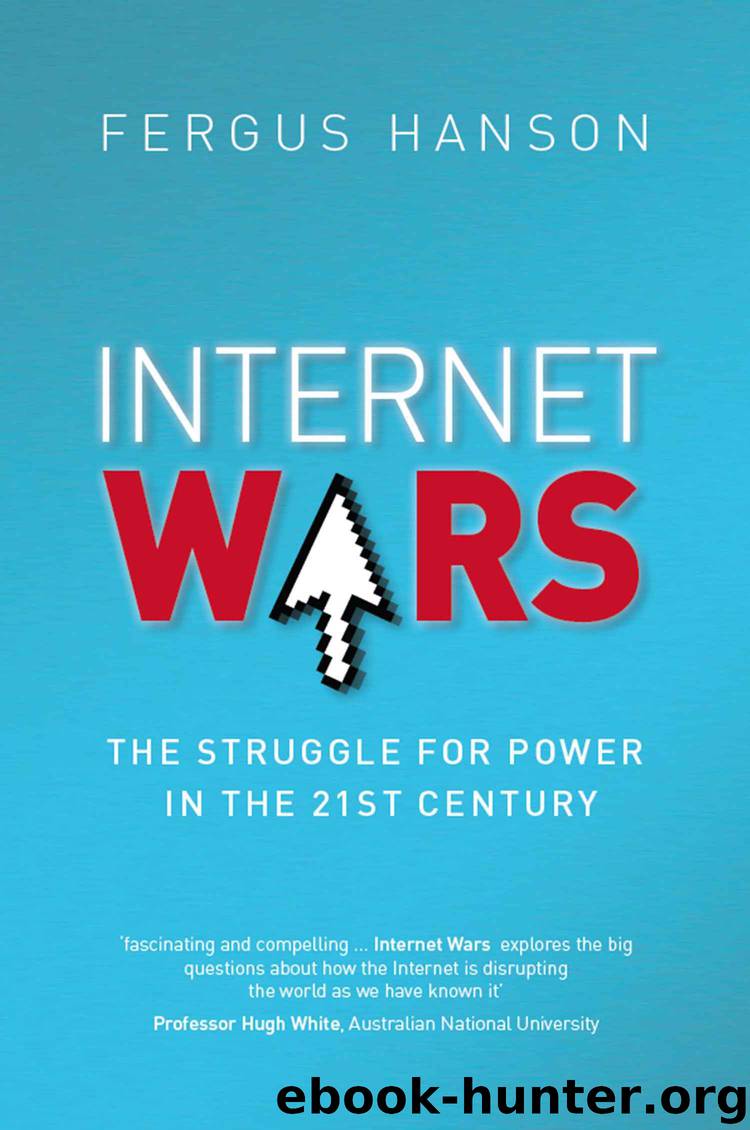Internet Wars by Hanson Fergus

Author:Hanson, Fergus
Language: eng
Format: epub
Tags: politics, economics, business, technology
ISBN: 9781920681685
Publisher: Longueville Media
Published: 2015-09-28T04:00:00+00:00
A flash mob in Kathmandu. Copyright © US Embassy Kathmandu via flickr
*
The first three chapters have traced the rising power of the Third Estate. The masses are being presented with radical new ways to aggregate their voice in order to exert influence on decision makers. For the first time in history, we are able to aggregate easily our voices outside formal structures, like trade unions and political parties. The pioneering efforts of corporations like Change.org and Purpose are bringing the principles of unionism in the workplace to policymaking by the masses. It is a messy new reality, where everyday citizens and online campaigners are often in a position to develop and drive change on the fly. It is a method of organizing that can seamlessly span borders and introduce a disruptive new player into the democratic marketplace of ideas. And although these new players may cloak themselves in the democracy-friendly language of people power, questions remain about the legitimacy of these early platforms that often appear as new-age lobby groups for particular interests.
Another new niche and powerful actor is the networked NGO. Galvanized around an ideology or potent new idea, small bands of often dispersed individuals are now injecting themselves directly into national and international debates. They are not just pushing positions, but altering reality by implementing their agendas, making them an often difficult adversary for establishment institutions to contend with.
Finally, the internet has been a game changer for mass mobilization on the streets. This has reached the point where it is questionable whether certain mobilizations could even have occurred were it not for the connection technologies the internet enables.
Governments around the world have struggled to accommodate the sudden rise of the Third Estate of citizen power. Campaigning sites have overwhelmed some politicians and left others battered. Democratic governments have struggled to accept some networked NGOs, such as Wikileaks, that claim to promote democratic safeguards like whistleblowing, albeit in radical new ways. Mass protests toppled dictators in some countries and led to bitter civil war in others. Even when successful, the new leadership-light revolts have been messy. The ousting of the newly elected Egyptian President Mohamed Morsi, in 2013, by many of the same protesters who toppled his autocratic predecessor just two years earlier, is a case in point.
Up to now, we have traced the extraordinary rise of the individual that the internet and connection technologies have enabled. But we should not be misled by a one-sided look at the emerging new order. So far, it might appear that people power is on the rise and governments and corporations will just have to learn to live with this new reality. But a much bigger game is in play. Manuel Castells has argued:
Mass self-communication provides the technological platform for the construction of the autonomy of the social actor, be it individual or collective, vis–à–vis the institutions of society. This is why governments are afraid of the internet, and this is why corporations have a love-hate relationship with it and are trying
Download
This site does not store any files on its server. We only index and link to content provided by other sites. Please contact the content providers to delete copyright contents if any and email us, we'll remove relevant links or contents immediately.
| Anthropology | Archaeology |
| Philosophy | Politics & Government |
| Social Sciences | Sociology |
| Women's Studies |
The Secret History by Donna Tartt(19058)
The Social Justice Warrior Handbook by Lisa De Pasquale(12187)
Thirteen Reasons Why by Jay Asher(8894)
This Is How You Lose Her by Junot Diaz(6877)
Weapons of Math Destruction by Cathy O'Neil(6267)
Zero to One by Peter Thiel(5789)
Beartown by Fredrik Backman(5737)
The Myth of the Strong Leader by Archie Brown(5500)
The Fire Next Time by James Baldwin(5432)
How Democracies Die by Steven Levitsky & Daniel Ziblatt(5216)
Promise Me, Dad by Joe Biden(5146)
Stone's Rules by Roger Stone(5081)
A Higher Loyalty: Truth, Lies, and Leadership by James Comey(4954)
100 Deadly Skills by Clint Emerson(4921)
Rise and Kill First by Ronen Bergman(4780)
Secrecy World by Jake Bernstein(4743)
The David Icke Guide to the Global Conspiracy (and how to end it) by David Icke(4709)
The Farm by Tom Rob Smith(4502)
The Doomsday Machine by Daniel Ellsberg(4485)
